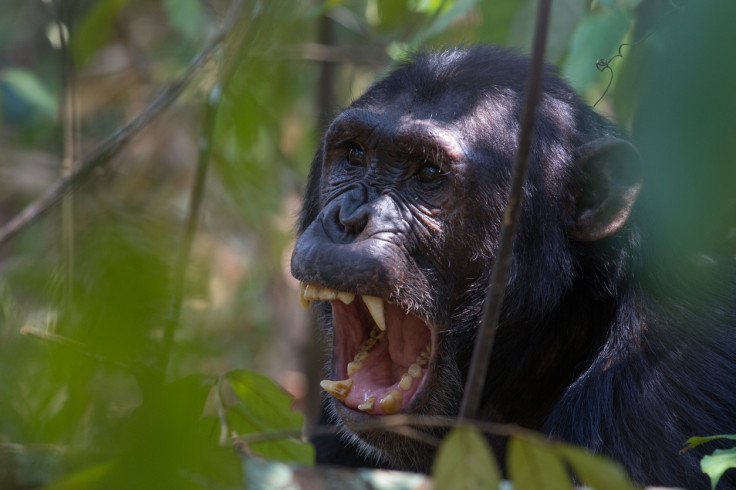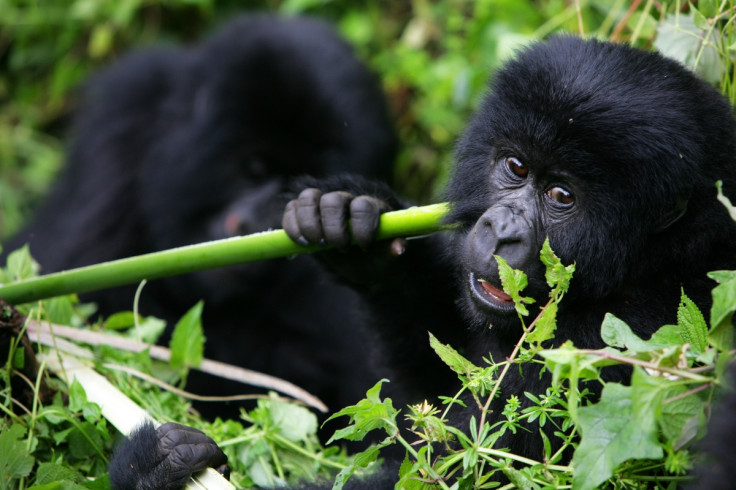Oral Ebola vaccine for chimps could protect threatened wildlife from deadly virus
Apes too have been decimated by the Ebola virus and scientists are trying to find vaccines to protect them.

They are the other victims of the Ebola epidemic – gorillas and chimpanzees have also been hit hard by the virus.
However, progress may also be on the horizon for apes, as a team of scientists from Cambridge University has now developed an oral vaccine that could provide them with safe and effective protection from pathogenic threats.
A study has estimated that one third of the world's gorillas have been killed by Ebola, although critics have argued that it's impossible to know for sure because the big apes are famously known for being tough to monitor, and their exact numbers in the wild are unknown.
What is certain is that pathogenic threats like Ebola are increasingly menacing the planet's wildlife. African apes are also exposed to deadly naturally occurring pathogens like anthrax, SIV (the wild ape equivalent of HIV), and the increasing spillover of human pathogens.
There is a growing scientific interest in finding solutions to these problems.
Delivering vaccines
Even if scientists have good vaccine candidates, a significant challenge is delivering them to animals that often live at low density in thick, tropical forests. Traditional vaccine delivery darts often fail to reach them.
So in their study now published in Scientific Reports, the Cambridge scientists tested whether new vaccine oral technologies could protect endangered wildlife, like chimpanzees and gorillas, against infectious diseases –and solve the issue of vaccine delivery.
"You can deliver vaccines with darts but you often can't get close enough to gorillas in the wild, they are scared of people especially as they are often hunted down for bushmeat. Darts are not an option so we wanted to come up with another alternative. In Europe, oral vaccination has been tried on foxes to vaccinate them against rabies, and the cost-benefit analysis is really clear, this is a safe and effective strategy,", lead author Peter Walsh told IBTimes UK.
Walsh and his team worked with ten chimpanzees in captivity, testing a rabies virus-based Ebola vaccine known as filorab1.
In July 2016, a research published in the Journal of Infectious Diseases had already shown that rhesus monkeys presented no to mild clinical signs of Ebola after receiving vaccine injections of filorab1.
Here, the scientists tested whether it was effective and could work when given orally. They vaccinated four of the chimpanzees via an intramuscular injection while the other six were given the vaccine orally under sedation.
Chimpanzees, like gorillas, have been affected by Ebola, although to a lesser extent, in part because they are more widely distributed.
All the animals were monitored for 28 days after vaccination.

The scientists observed the levels of Ebola antibodies rise in chimpanzees that had received the oral vaccine, in much of the same way as the antibodies of those that had received the injection. These are encouraging findings which suggest that oral vaccination could be safe and effective for apes in the wild, protecting them from Ebola.
However, there are a number of limitations, including the fact that the animals were not exposed to the virus after vaccination to see how their bodies reacted. More research is needed, especially in the field, to see if the same effects can be observed in wild species.
An important challenge will be designing oral-baits prototypes to expose the apes to the vaccines without having to catch and sedate them. The team is now working on sweet baits which could be released in the apes' habitat and used to deliver the oral vaccines.
If this strategy is successful, it could also be beneficial for humans, in the context of future potential epidemics. "In the vast majority of Ebola outbreaks, humans don't catch it with direct contact with fruit bats, who are thought to be the virus' natural reservoir. Humans have gotten sick when they have come in contact with intermediate hosts such as chimpanzees and gorillas. So vaccinating them could help protect humans too, and it is not a huge task to undertake because populations of these animals in the wild are not large," Walsh concluded.
© Copyright IBTimes 2025. All rights reserved.






















